Roval Rapide CLX II Review
We put the Roubaix-proof, speedy Rapide CLX II wheels through their paces, both on road and gravel
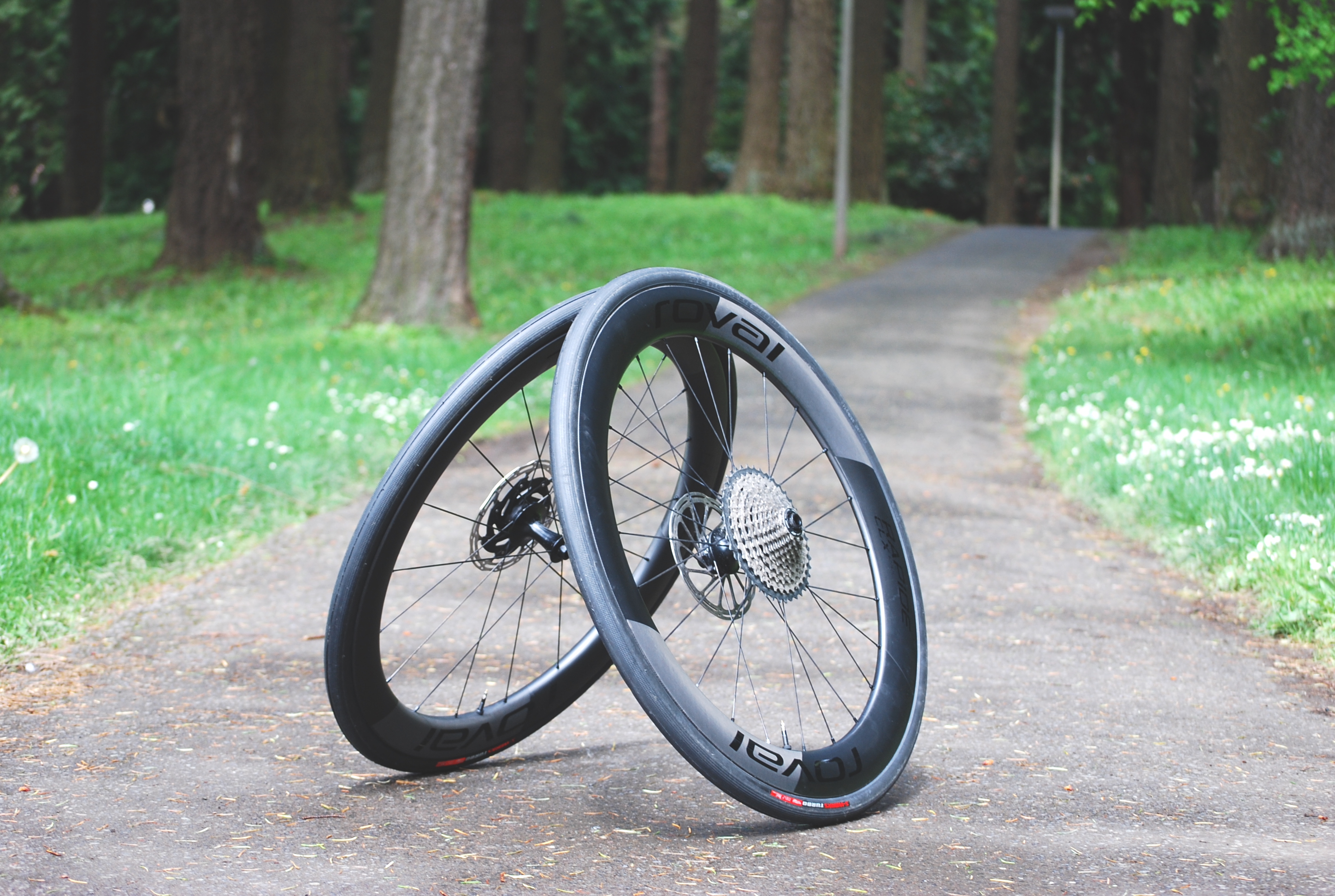
Lightweight, undeniably fast, Roubaix-proof and stable: these high-end carbon hoops tick all the boxes.
-
+
Stiff
-
+
Undeniably fast
-
+
Great handling
-
+
Tubeless-compatible
-
+
Easy tubeless setup
-
+
Hooked rims of tire compatibility
-
-
Lots of rim wall exposed when used with 24mm - 28mm tires
-
-
Only thing not to like is the price
You can trust Cycling Weekly.

After raising eyebrows by launching two tube-only wheelsets back in 2020, Roval has now gone tubeless for the second generation of its Rapide CLX and Alpinist CLX wheelsets — a tremendous undertaking that took them some 21 months of testing and development.
At the time, the brand’s message stated that the tube system was simply fastest. And it sure seemed so. In the 2020-21 race seasons, the Rapide and Alpinist wheels were ridden to an impressive 155 race wins in fact.
But that wasn’t necessarily the complete story (which you can read at-length in the launch article). Roval engineers had been well on their way to producing tubeless-compatible WorldTour-level wheelsets when Peter Sagan destroyed a prototype wheel during winter training. Upon examining the wheel in the lab, Roval engineers found that wheel as well as the safety standards it had met so convincingly, were woefully inadequate.
Featuring a new carbon layup and hooked, tubeless compatible rims, the second generation Rapide CLX wheels were unveiled to the public in May 2022, after already making covert appearances at WorldTour races like Paris-Roubaix — perhaps, to support their claim that these are the strongest wheels Roval has ever made at the lightest possible weight. Strongest and, of course, fastest. When set up tubeless, Roval's self-proclaimed ‘fastest road racing wheelset in the world, is even faster.
Additionally, Roval feels so strongly about their higher standards and testing procedures that they wrote a white paper and shared it with the relevant governing bodies, hoping other companies will follow suit and raise their standards.
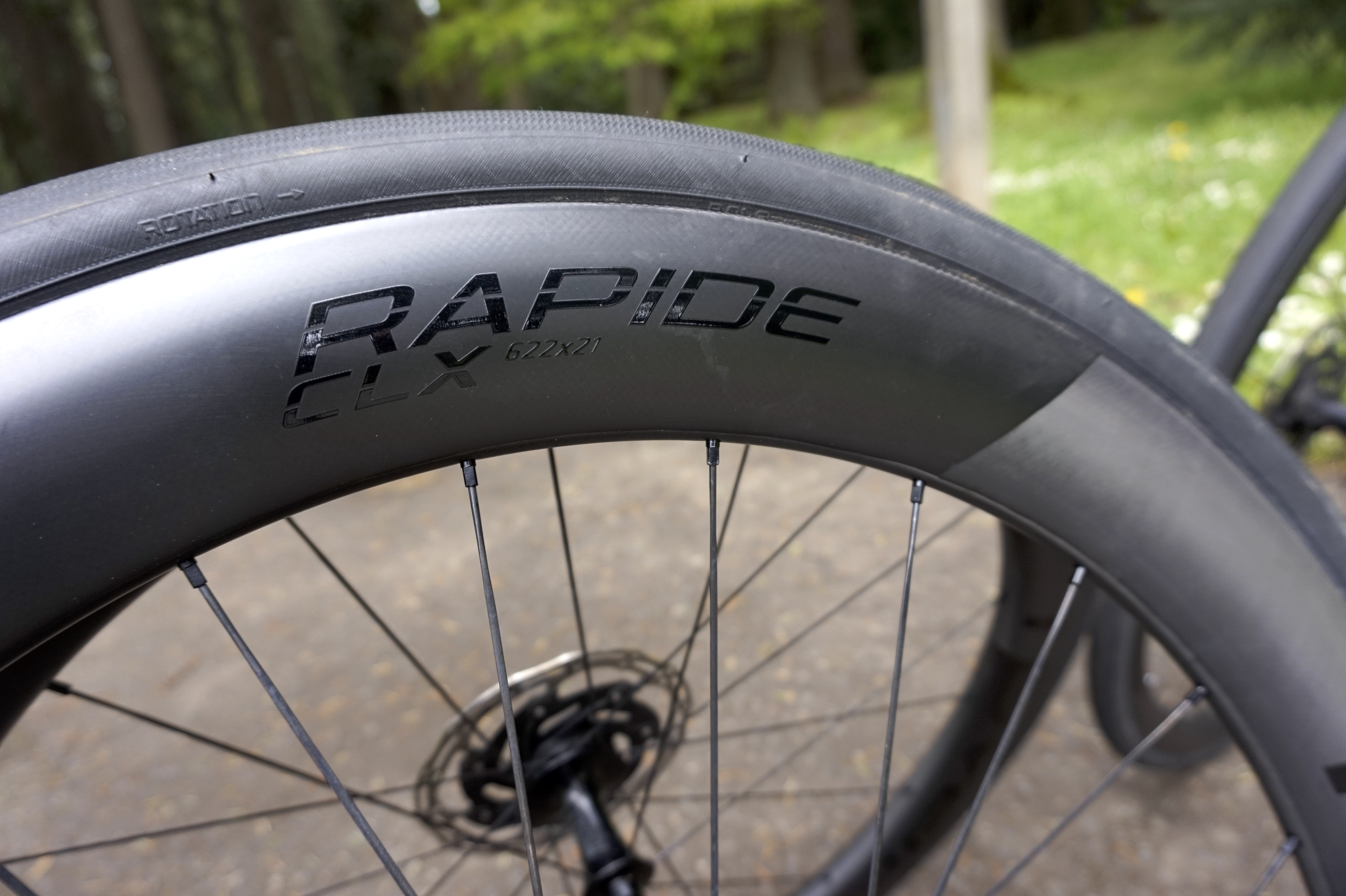
Roval's striker test
Introducing: Roval Rapide CLX II
Tubeless compatibility aside, it’s hard to detect much difference between the first and second generation Rapides.
Born from the idea of combining the aerodynamic advantages of the CLX 64 with the stability of the CLX 32 wheelsets, the Rapide wheelset consists of two mixed rims: a 51mm-deep front rim with a 35mm external width, and a narrower but deeper rim in the back that’s 60mm deep and 30mm external width.
The latest race content, interviews, features, reviews and expert buying guides, direct to your inbox!
The rim shapes and mixed depths were carried over from the highly successful first generation Rapide, and were optimized for both the unique aero challenges of its position on the bike as well as rider stability. Roval claims that the shape reduces the impact of side winds and gusts, allowing riders to correct less and maintain speed. To the bare eye, you’ll note a front wheel that is both narrower and wider than the rear, due to the fact that the front wheel is considerably more affected by sidewinds than the rear. With the rider’s weight stabilizing the rear, engineers were able to build a deeper, narrower rim for drag reduction.
Combined, the wheels are said to be faster than most 65mm-deep wheels on the market while also being 25% more stable than the Roval CLX50 in windy conditions.
Like the first generation, the Rapides are built around Roval’s AeroFlange hubs, which make use of DT Swiss’ latest EXP freehub with new ceramic SINC bearings and a lighter and simplified ratchet system. This system spreads the bearings further apart for added stiffness while making the ratchet more reliable and easy to swap freehub bodies.
Any speed advantage between the first and second generation Rapide CLX wheels come purely from the lesser rolling resistance when set up tubeless.
For its tubeless compatibility, Roval opted for a hooked rim instead of a hookless system to ensure secure bead retention and tire compatibility with most brands on the market. It also allows for inflation up to 110psi, if that’s your thing. (Though I’d highly recommend exploring the lower PSIs for a cushier, more grippy ride.)
With an internal width of 21mm, the rims can fit tires between a narrow 24mm and ready-to-get-rowdy 38mm. It should be noted though that these wheels were aerodynamically optimized around 26mm tires. Additionally, with tires measuring 28mm or less, there’s a serious amount of rim edge showing, which looks odd but worse, you’d be riding on pure rim should you get a flat.
In the process of becoming stronger and tubeless-compatible, the Rapides did put on a wee bit of weight — around 105 grams over the previous iteration — yet at 1520 grams with tape and valves, the Rapide CLX II wheelset is still quite light for being an aero wheelset.
The wheelset is available in disc brake only, with either black or white decals, and retails for £2500 / $2800.
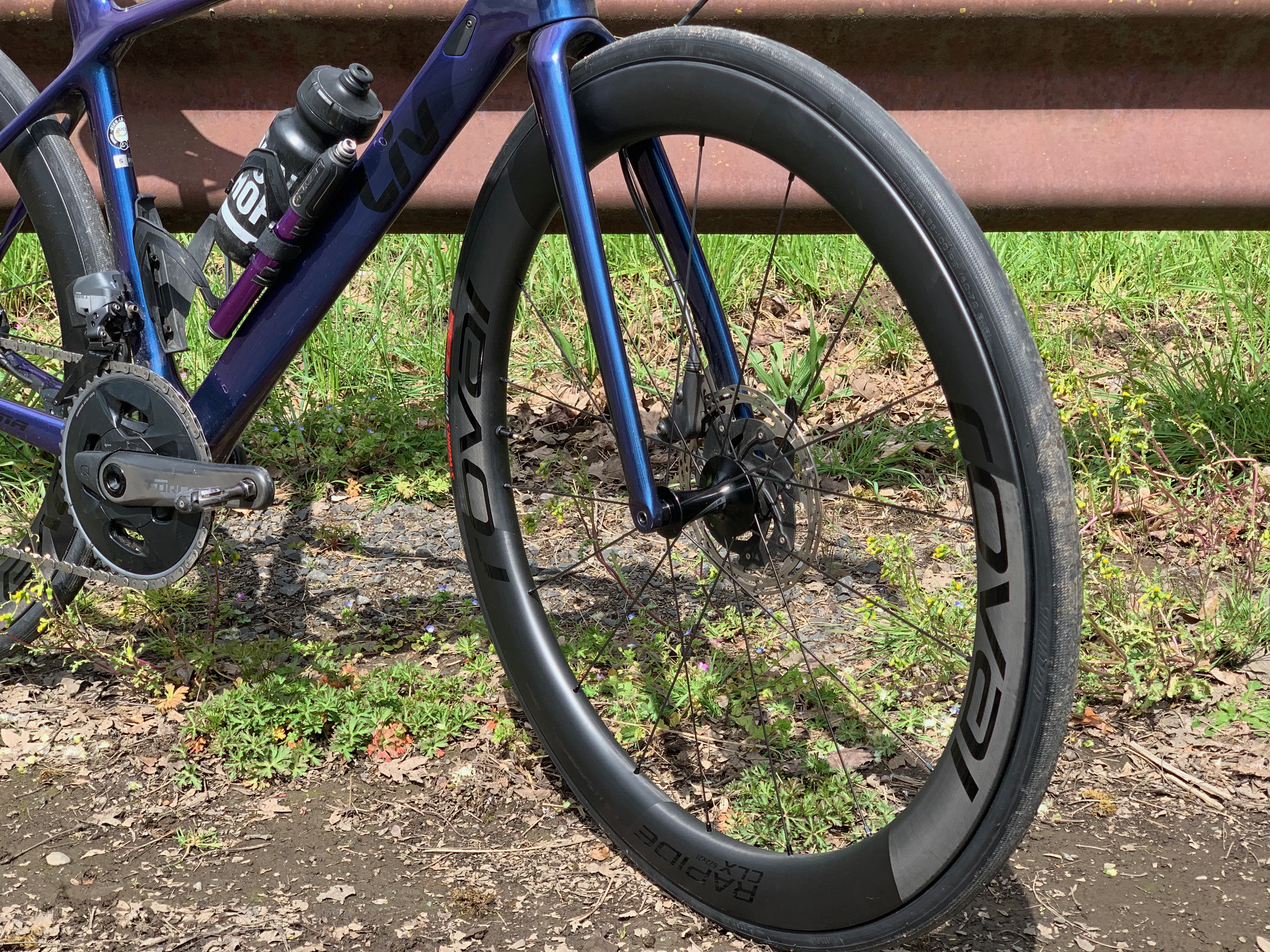
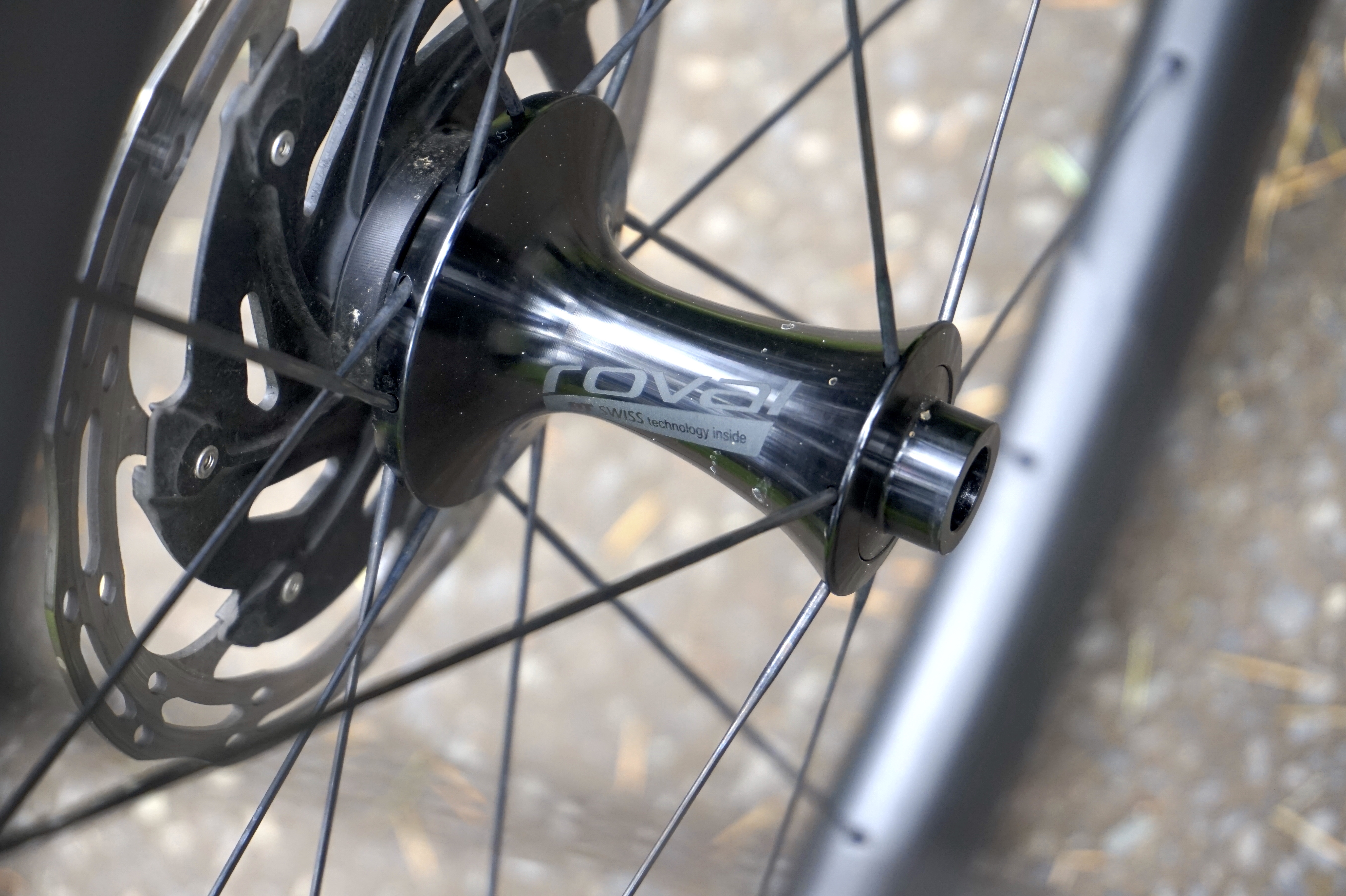
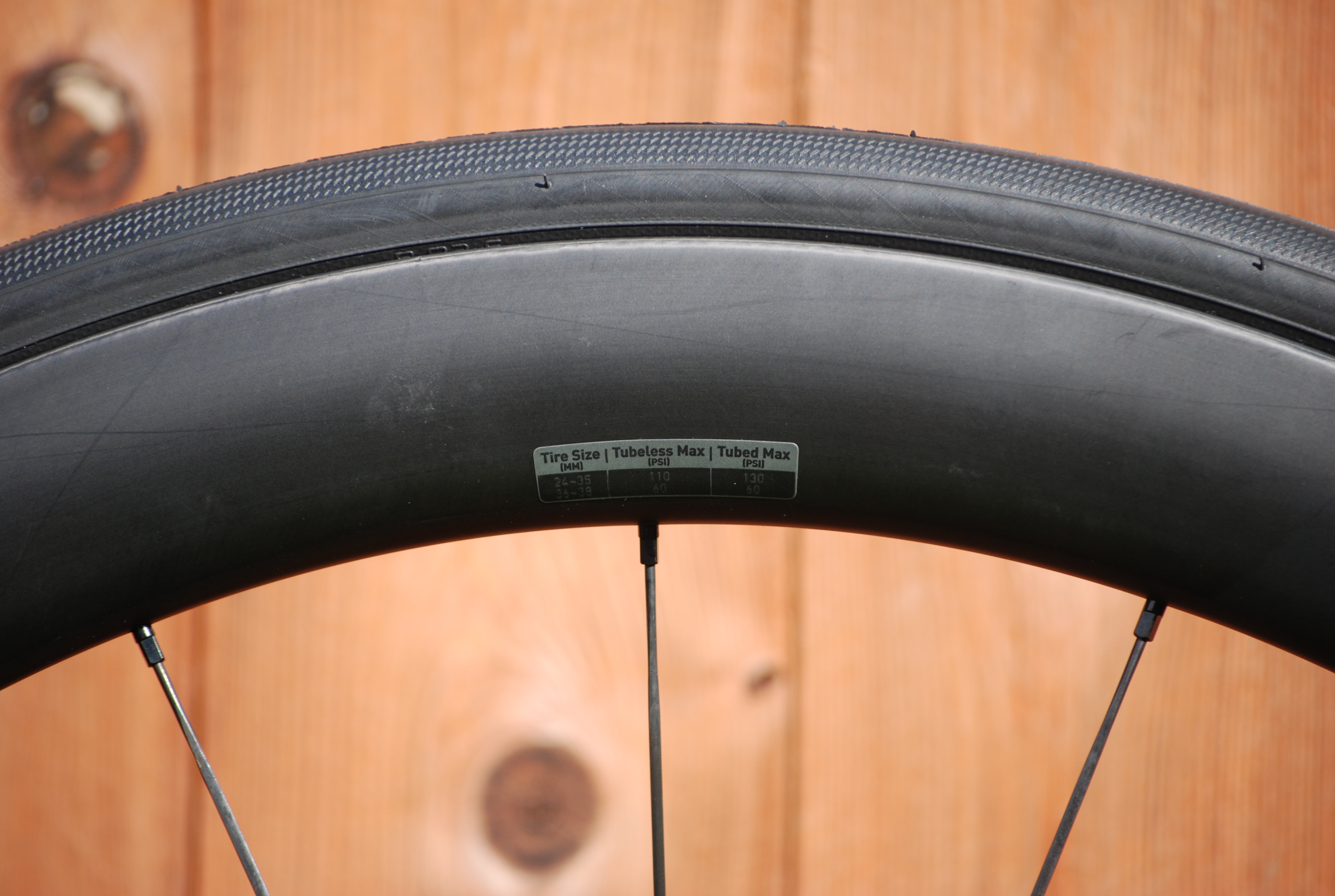
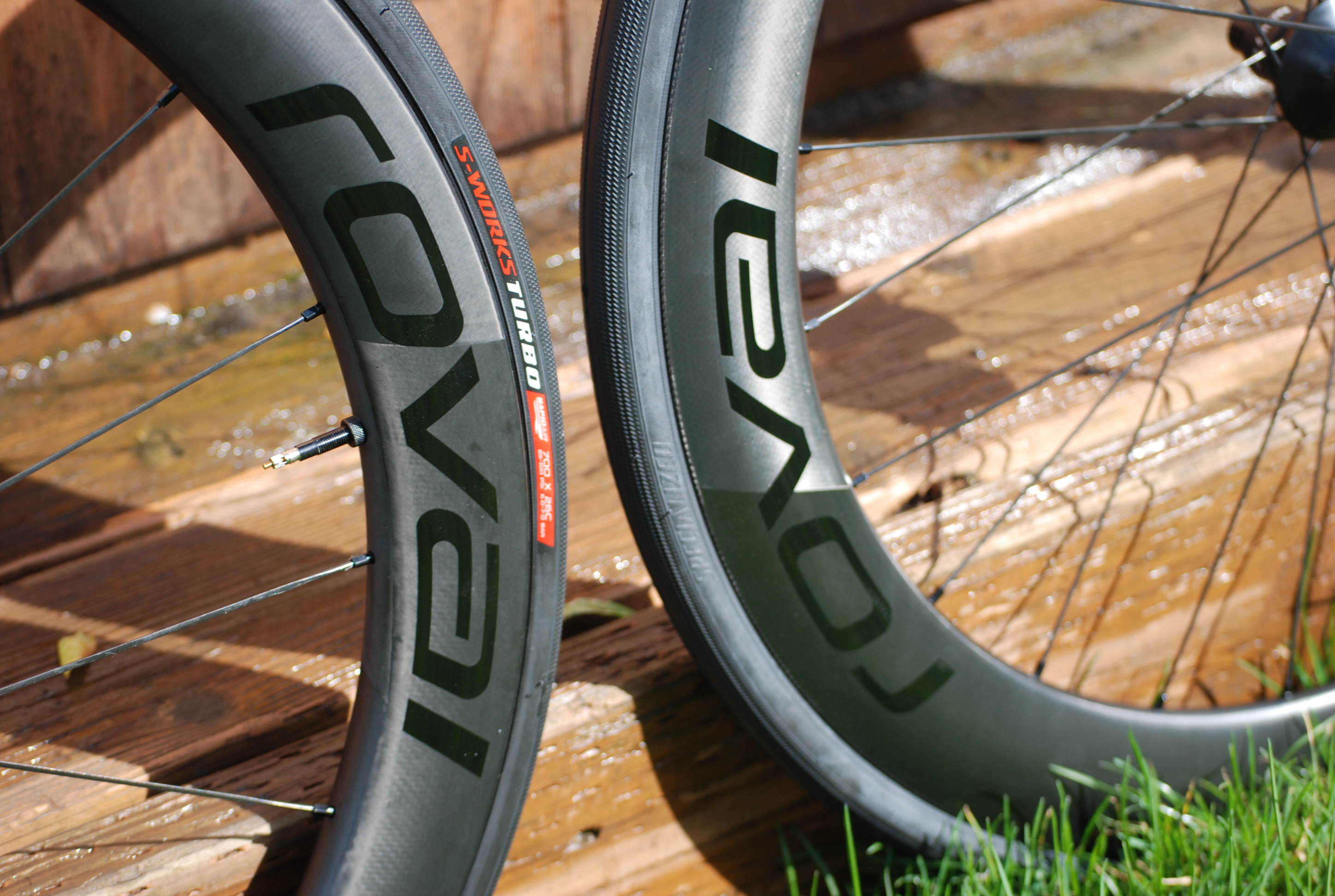
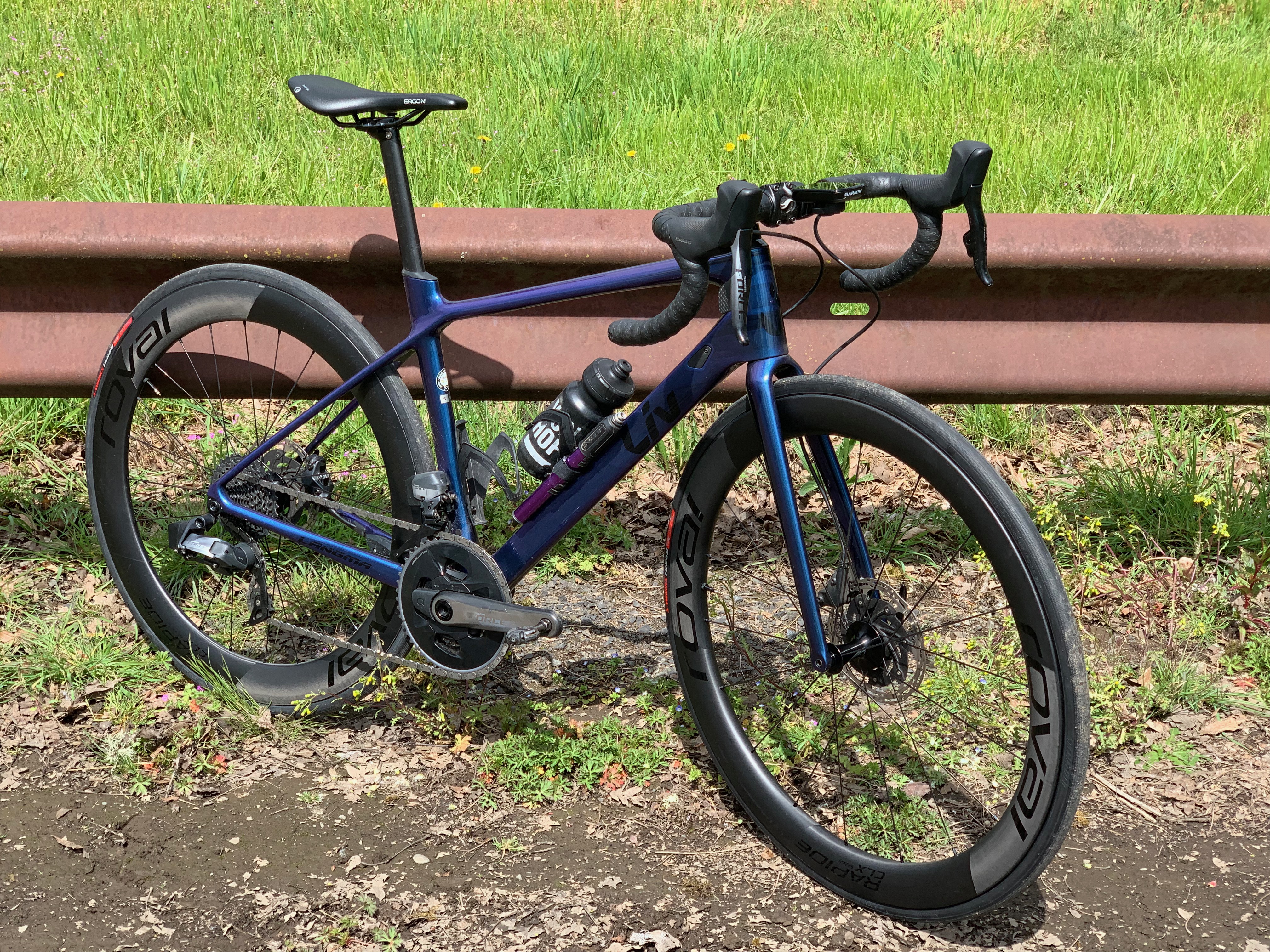
How They Roll
In talking to the Roval engineers, I was promised an 'easier tubeless setup experience than ever before.'
The outer rim diameter dimensions were shifted ever so slightly to create an extra 1.4mm of bead slack in the tire. As a result, the tire should seed easily and come off without too much of a struggle.
Indeed, I have rarely had such an easy time setting up road tubeless wheel systems. First with the 26mm S-Works Turbo, and later, the 30mm version of the same tire. No compressor, no special tire seating tool, no sticky sealant all over the sidewalls, no problems.
For my initial test ride, I threw the wheels on my Liv Langma and headed out for a spin around Sauvie Island, a mostly flat 40k farmland jaunt that’s quite exposed and winds always play a factor here. Ticking off city block after city block on my way out of town, the stiffness and quick acceleration of the wheels were immediately apparent. Out of the saddle, power on the pedals, the wheels propelled. Responsive, playful, speedy. Race wheels indeed, and the retired crit racer in me was grinning from ear to ear.
Around the island, it was easy to forget that I was riding much deeper rims than I usually do; even the 60mm rear wheel made no objections to the persistent sidewinds. My first Rapide ride simply put a grin on my face, and a new PR on my Strava board.
I spent a couple weeks on the Rapide wheelset, taking them up in the hills, around my usual routes, and even off-road. I was impressed with the versatility. At a tad over 1500 grams there’s really no weight penalty to speak off and they climbed with surprising ease.
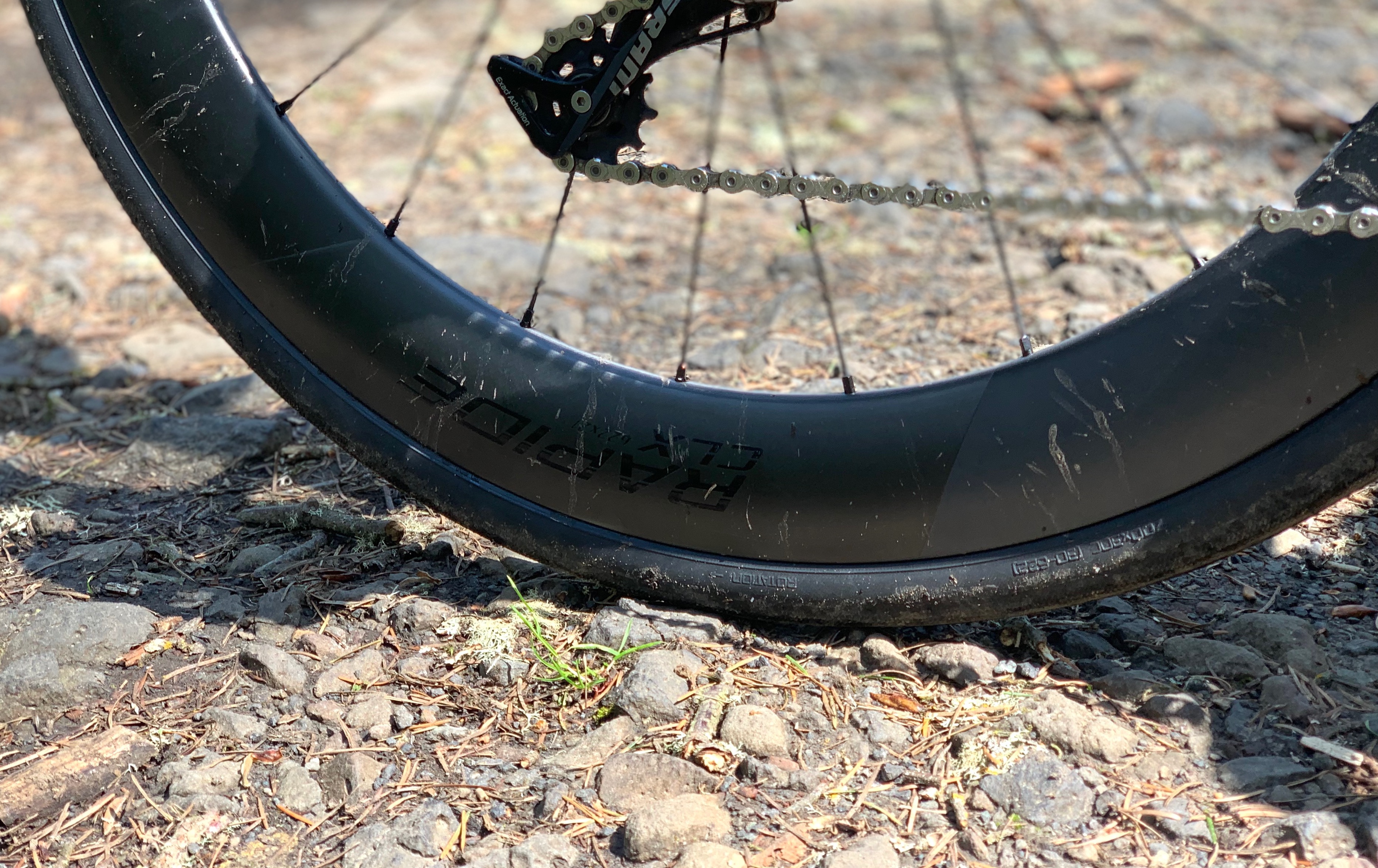
Ready to get rowdy
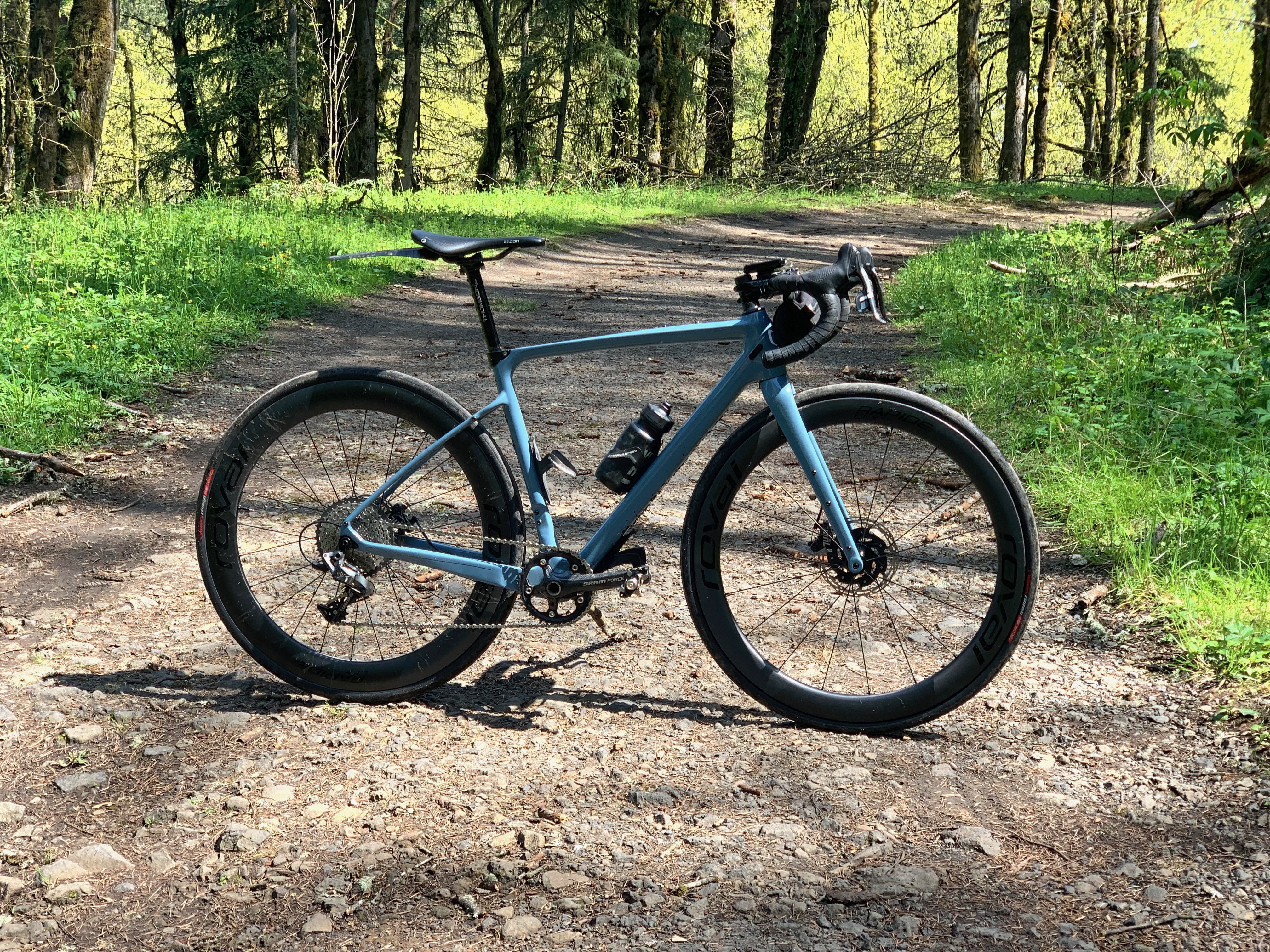
And while one wouldn’t necessarily be inclined to take a rather expensive, deep dish carbon rim onto the roughest road around, that’s exactly what I did. The Rapides had already proven themselves at Roubaix afterall, plus I was told they were gravel-capable, so on my gravel bike they went. Portland doesn’t have any cobblestone roads worth mentioning but we do have Leif Erikson Drive, a 10-mile trail that has everything from fist-size rocks, crushed stone, gravel, dirt, broken up stretches of something that was once pavement and, these days, lots of mud and slop.
Now, I don’t expect these wheels to be Unbound-regulars nor would I bill these as gravel wheels by any means, but they sure are fun and despite their stiffness, they tackled the roughness with aptitude. Set up with 30mm slicks for the part-road, part-everything-else ride, the Rapides were nimble enough to navigate the bumpy, unpredictable terrain and keep traction without destroying my lower back in the process. I think the shatter and stiffness would make itself known over rough terrain in the long run, sure, but the Rapides seemed unfazed by stretches of roughness on mixed terrain rides. I was rather impressed with how much these wheels transformed and elevated my gravel bike. They added a lot of snappiness that the bike usually lacks, and made it feel faster and livelier than it has ever done before.
Conclusion:
Lightweight, undeniably fast all-rounders, now with the added benefits of being tubeless-compatible: these wheels tick all the boxes for me. They’re a pure joy to ride.
But when it comes to value, the Rapide CLX II wheelset is a tricky one to assess. At first glance, they may seem spendy. For a relatively small weight penalty, one could buy the comparable Hunt 48 Limitless with ceramicspeed bearings for nearly a grand less. Same with the mixed rims Road DT 350 50/65 tubeless wheelset of Reserve. Even Zipp’s 404 Firecrest wheelset comes in at less, both in weight and price.
At this price point you’re falling into the category of Enve’s SES 4.5 AR or even the hyperlight Zipp 454 NSW wheelset.
But there is of course something to be said for the brand name and the extensive research that not only went into these wheels but also challenges industry standards and pushes the whole industry forward.

Cycling Weekly's North American Editor, Anne-Marije Rook is old school. She holds a degree in journalism and started out as a newspaper reporter — in print! She can even be seen bringing a pen and notepad to the press conference.
Originally from the Netherlands, she grew up a bike commuter and didn't find bike racing until her early twenties when living in Seattle, Washington. Strengthened by the many miles spent darting around Seattle's hilly streets on a steel single speed, Rook's progression in the sport was a quick one. As she competed at the elite level, her journalism career followed, and soon, she became a full-time cycling journalist. She's now been a journalist for two decades, including 12 years in cycling.